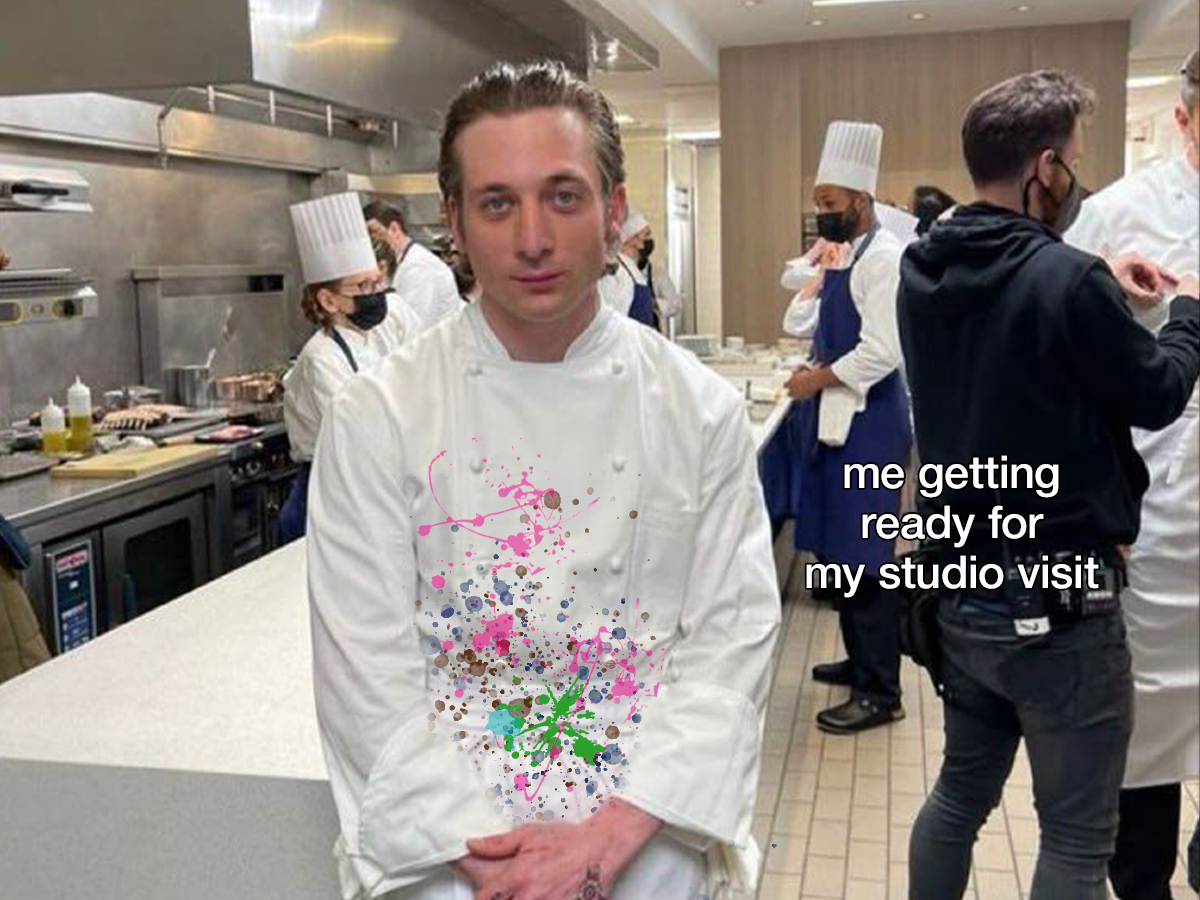
"I make art on a small kitchen table in my house, which makes it difficult to invite people over for studio visits. I don't have the money for a dedicated studio, but I'm too embarrassed to invite curators and dealers to see my work without better viewing conditions. Also, I don't live all that close to a major city center. What can I do? - Shy and living remotely. You want to know if your kitchen-table studio will hurt your career."
"But let's back up. Is there even an ideal studio setup we should all be aspiring to? Traditionally, we tend to value centrally located studios with pristine white walls, even lighting and plenty of storage. If you can afford to rent or build out those spaces, that's great. But a lot of artists don't have that money and might never find it."
"You might want a better space, but the only space I remember because it was so amazing was that of an artist who occupied an entire floor of the new World Trade Center. You don't forget a 360-degree view of the city nearly 100 stories above ground. The space had been donated by a wealthy real estate magnate who lost millions when the trade towers were attacked in 2001. The artist made paintings of those towers."
A small or unconventional workspace does not inherently damage an art career if the work and its presentation are prioritized. Many successful studio visits occur in kitchens, living rooms, public spaces, and other nontraditional venues; the prestige of a physical studio does not guarantee opportunities. Artists should focus on controlling viewing conditions through good lighting, tidy presentation, high-quality images, and clear documentation. Practical alternatives include off-site viewings, temporary rentals, residencies, pop-ups, and honest communication with curators. Location matters less than clarity, professionalism, and creative solutions for showing work.
Read at Hyperallergic
Unable to calculate read time
Collection
[
|
...
]